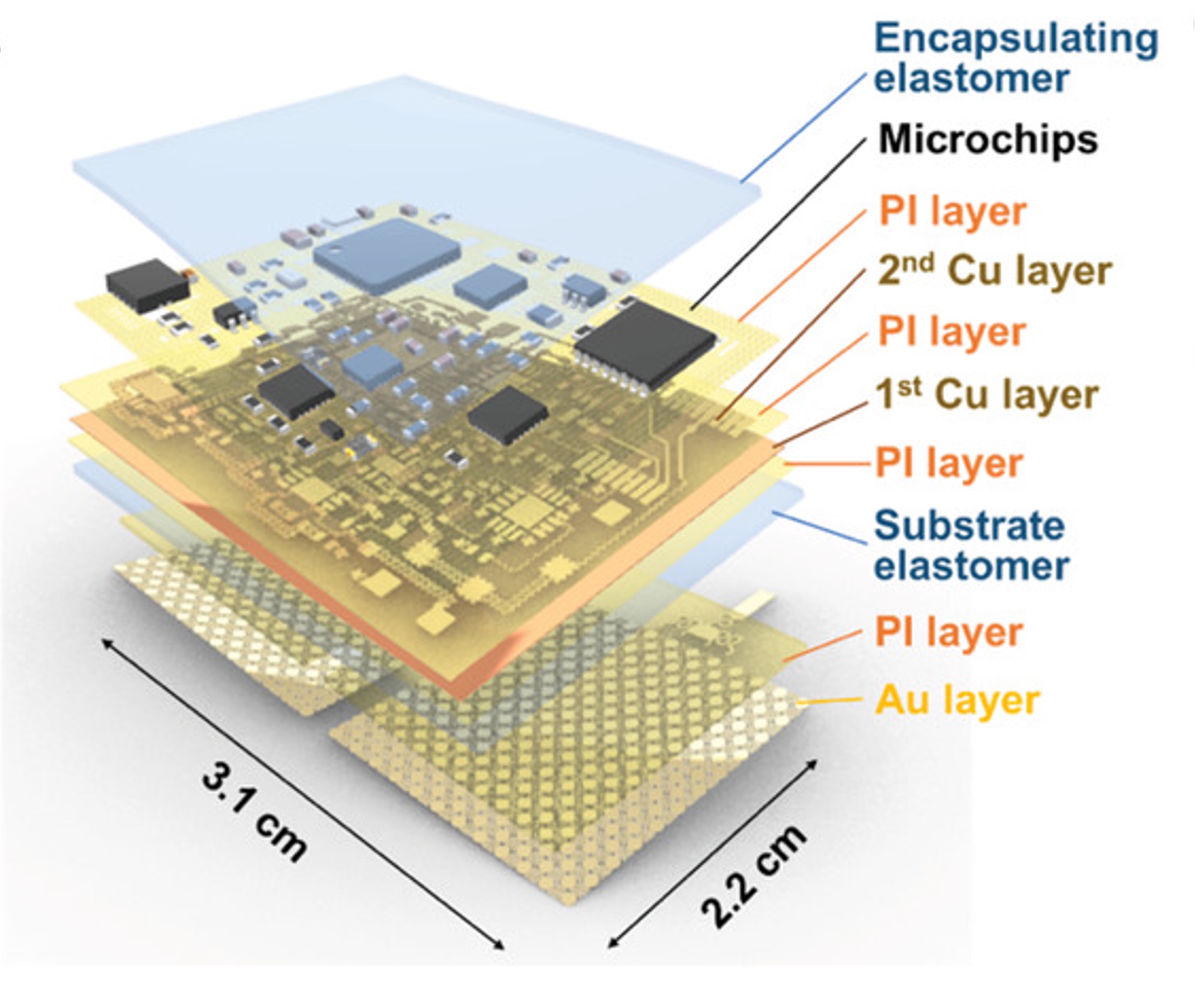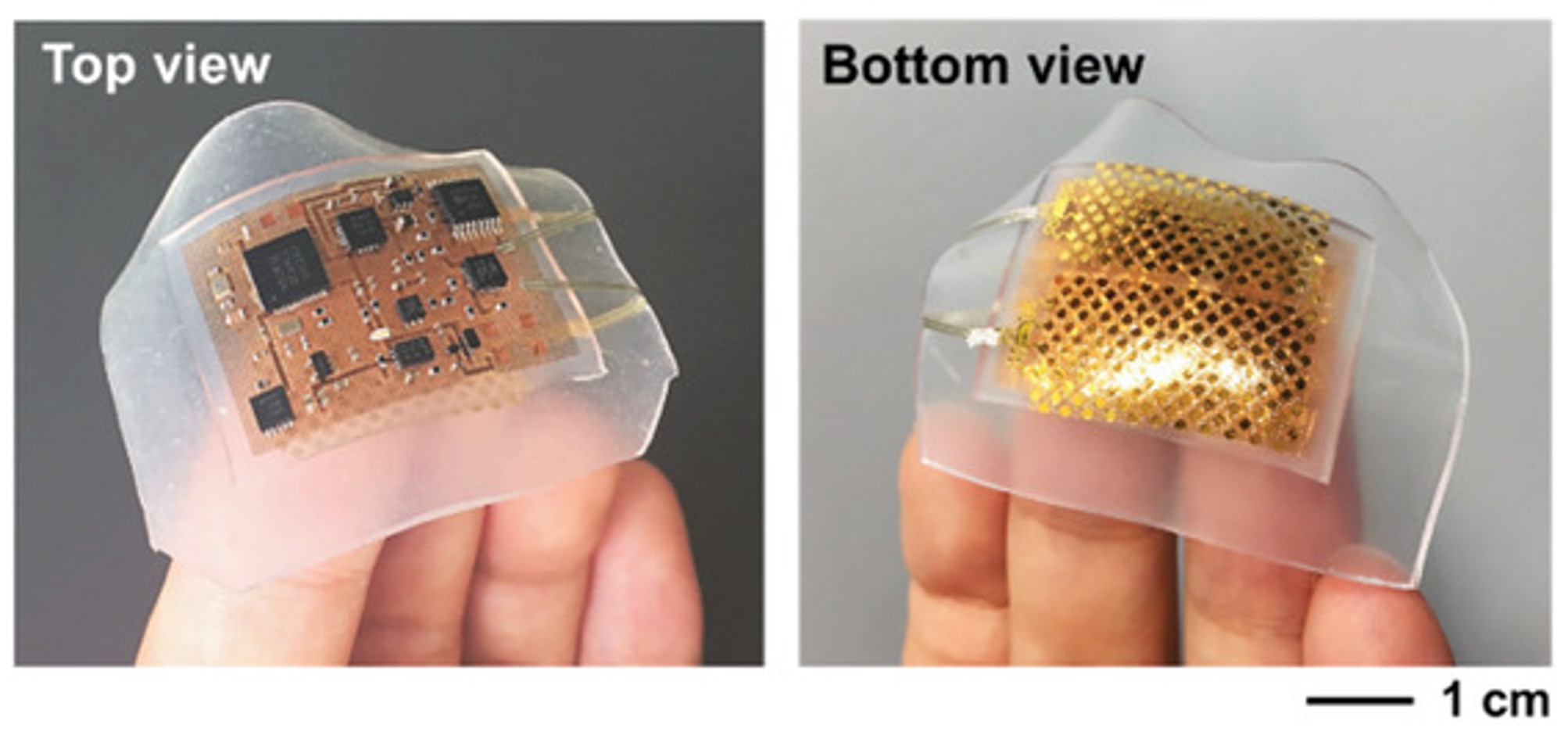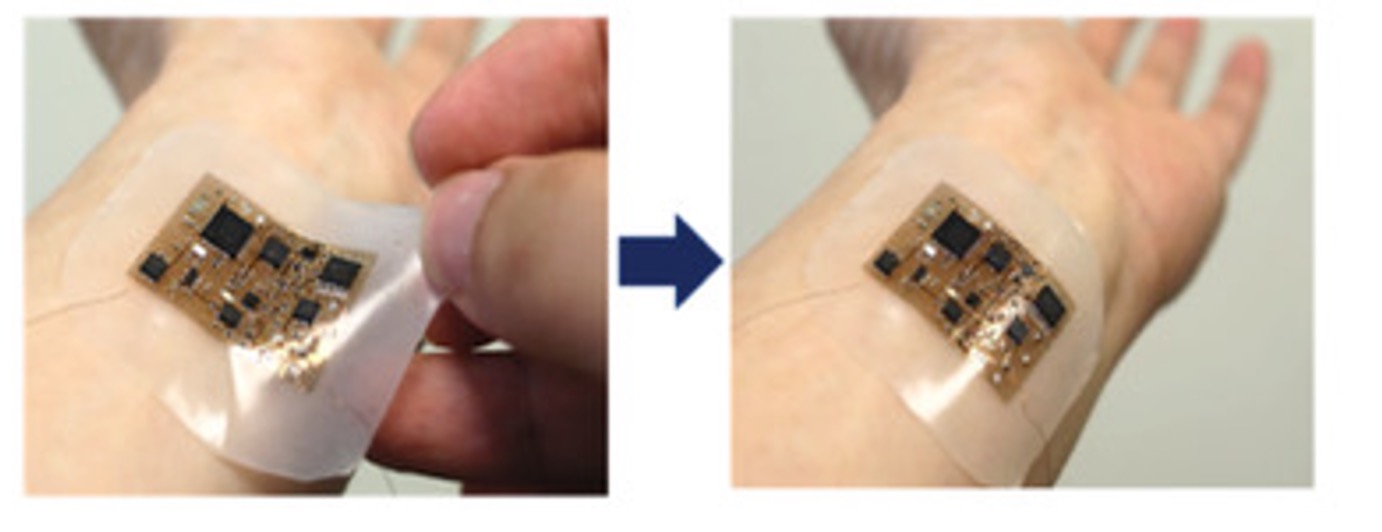This portable stress monitor, SKINTRONICS, is a comfortable, wearable device that utilizes fully stretchable, wireless skin-conformal bioelectronics, designed to provide precise readings of heart rate and sweat gland activity via galvanic skin response. Georgia Tech’s thin, conductive film and flexible layered electrodes with nanomembrane sensors create an impressive device that weighs less than 7 g, including its rechargeable battery. Other galvanic skin response wearable monitors may weigh (in volume) six times more than this technology or greater.
Where other devices lack the ability to maintain adequate contact without pressure from a band or strap, this adaptable stress monitor can be applied directly to the skin and fits snugly to the natural curvature of the body at the wrist or shoulder. The bioelectric wearable device is designed for greater comfort—it is soft, thin, and less than 5 mm thick. The durability and performance of the portable stress monitor has been tested to confirm that it can endure the daily wear of its users.
The quality of the data output of the high-sensitivity nanomembranes in this novel device was also tested and measured to be comparable, if not superior, when concurrently compared to two commercially available devices. Georgia Tech’s portable stress monitor is designed to provide more accurate ongoing measurements and delivers an improved wearable design so that cardiac patients, infants in the pediatric intensive care unit (PICU), or even athletes may receive improved health monitoring with greater comfort.
- All-in-one: The personal adhesive bandage-like single device platform offers wireless, multi-data sensing by simply mounting it on the skin.
- Disposable: This wearable device is fully disposable after the use and the measured data can be simply sent to the cloud via a tablet or smartphone app.
- Compact: The unique, thin design of this bioelectric device is one-sixth the volume of current market offerings—weighing less than 7 g, including its rechargeable battery.
- Greater comfort: The pattern of the biosensor’s electrodes is constructed to allow more than 50% stretchability and 30% areal coverage to the skin without the need for a constricting band or strap.
- Durable: The device has been successfully tested for flexibility and stability of its components with 1,000 cyclic stretching experiments to mimic daily use on the skin.
- Stress monitoring for cardiac patients
- Neo-natal monitoring in PICU
- Pediatric patient health monitoring
- Baseline metrics and ongoing monitoring of athletes
- Corporate and public employee wellness programs
Stress monitors have evolved significantly from the original wired electrodes—with limited placement near the palm/fingertips—to the wearable health monitors that multi-task as a pedometer, watch, and extension of the user’s cell phone. Though miniaturization of bioelectronics has improved the technology, the current market of monitors has been unable to break away from the combined plastic and metal frames that require a tight fit with a strap or band to conform to the body’s natural curvature at the wrist or ankle. Research shows that Georgia Tech’s wearable stress monitor brings greater comfort and flexibility without a constricting strap or band while providing accurate data about skin conductance changes, which is a quantifiable measurement of stress.

Schematic illustration of the fully integrated and multilayered structure of SKINTRONICS.

Photos showing a highly stretchable soft device on fingers with top view (left) and bottom view (right).

Photos that capture a device placement on the wrist by simply pressing the soft membrane to the skin.
